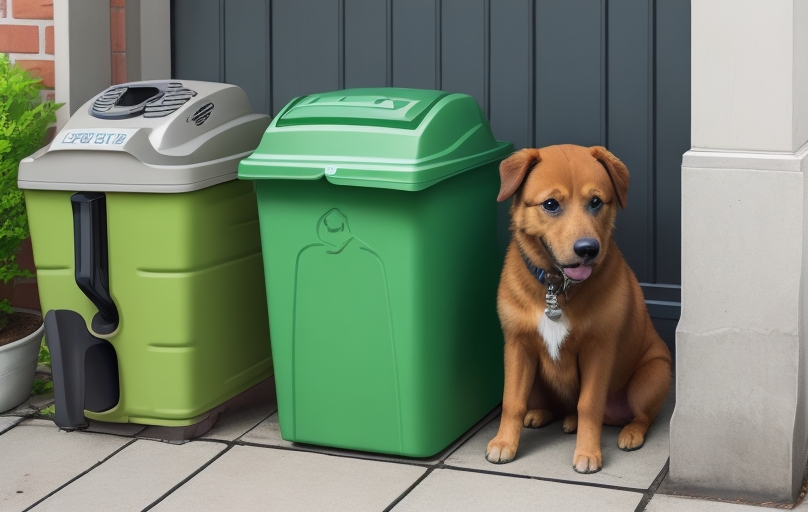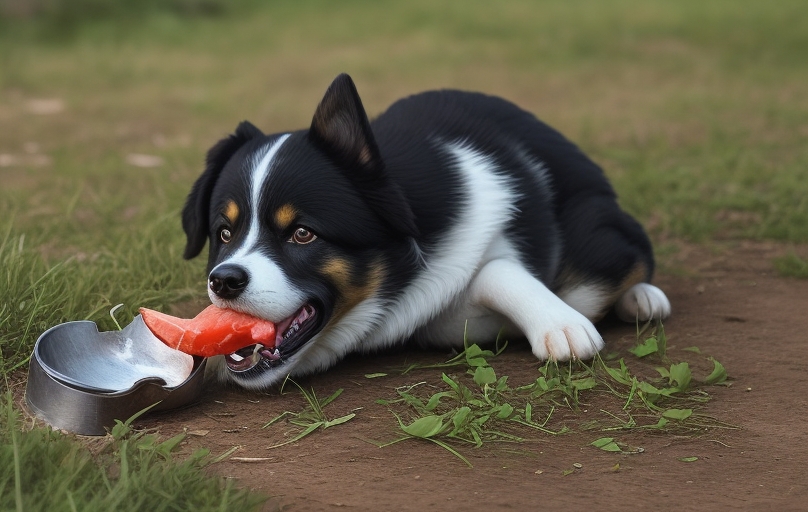If you are looking for What to Do if Your Dog Eats Something Poisonous? This guide is for you and will help you to understand what you can do if you have the same condition. Dogs are curious creatures, and their inquisitive nature can sometimes lead them to ingest substances that are harmful to their health. As responsible pet owners, it’s crucial to be aware of the signs of poisoning and take immediate action to ensure the well-being of our furry friends.
Scientific Research Insights
Study 1:
Title: A Review of the Clinical Management of Poisoning in Dogs and Cats
This study provides a comprehensive review of the clinical management of poisonings in dogs and cats. The authors discuss the different types of poisons that animals can ingest and the signs and symptoms of poisoning. They also provide a detailed overview of the treatment options for poisoned animals.
Study 2:
Title: Emergency Care of Poisoned Dogs and Cats
This study provides a practical guide to the emergency care of poisoned dogs and cats. The author discusses the importance of prompt diagnosis and treatment, as well as the specific steps that should be taken to stabilize and treat poisoned animals.
Study 3:
Title: Canine Poisonings: A Review of Clinical Signs, Diagnosis, and Treatment
This study reviews the clinical signs, diagnosis, and treatment of canine poisonings. The authors discuss the different types of poisons that dogs can ingest, as well as the factors that can affect the severity of poisoning. They also provide a detailed overview of the treatment options for poisoned dogs.
What to Do if Your Dog Eats Something Poisonous

1. Recognizing Poisoning Symptoms
Behavioral Changes
One of the first indicators of poisoning is a sudden change in your dog’s behavior. Pay attention to unusual lethargy, restlessness, or aggressive behavior.
Physical Symptoms
Watch for physical signs such as vomiting, diarrhea, difficulty breathing, or seizures. These symptoms can vary depending on the type of poison ingested.
2. Immediate Actions to Take
Contacting Emergency Vet Services
In any suspected poisoning case, contacting your veterinarian or an emergency pet poison hotline is paramount. Provide details on the substance ingested and your dog’s symptoms.
Inducing Vomiting
Inducing vomiting is a common first aid measure, but it’s crucial to consult a vet first, as it may not suit all substances.
Administering Activated Charcoal
Activated charcoal can help absorb toxins in the stomach, minimizing their absorption into the bloodstream. Again, consult with a vet before administering.
3. Common Household Poisons for Dogs
Chocolate Toxicity
Chocolate is a well-known dog toxin. Theobromine, a compound in chocolate, can cause various health issues in dogs.
Plants to Avoid
Certain plants, such as lilies and azaleas, are highly toxic to dogs. Ensure your home and garden are free of these dangers.
Human Medications
Many medications intended for humans can be lethal to dogs. Keep all medications out of your dog’s reach.
4. Preventing Poisoning Incidents

Dog-Proofing Your Home
Identify and secure potential hazards. This includes locking away toxic substances, securing garbage, and keeping harmful plants out of reach.
Proper Storage of Toxic Substances
Store chemicals, medications, and cleaning products in secure cabinets or areas inaccessible to your dog.
Educating Family Members and Guests
Ensure everyone in your household and guests is aware of the potential dangers and knows how to react in an emergency.
5. Treatment at the Vet Clinic

Diagnostic Procedures
Vets may use blood tests, urinalysis, or imaging to identify the type and extent of poisoning.
Treatment Options
Depending on the poison, treatment may involve medications, fluids, or other interventions to counteract the effects.
Prognosis and Recovery
The sooner treatment begins, the better the prognosis. Recovery may involve ongoing care and monitoring.
6. Home Care Post-Poisoning

Follow-Up Vet Visits
Regular follow-up visits ensure your dog is recovering well and allow the vet to detect any lingering issues.
Dietary Adjustments
Sometimes, dietary changes may be necessary to support your dog’s recovery.
Behavioral Monitoring
Be attentive to any behavioral changes or lingering symptoms, and consult your vet if concerns arise.
Psychological Impact on Dog Owners
Emotional Distress
Dealing with a poisoned pet can be emotionally challenging. Recognize and address your own feelings.
Coping Strategies
Seeking support from friends, family, or support groups can aid in coping with the emotional toll.
Conclusion
What to Do if Your Dog Eats Something Poisonous? Being proactive in preventing and addressing dog poisoning is a responsibility that comes with pet ownership. Educate yourself, secure your home, and act swiftly if an incident occurs. Your furry friend’s well-being depends on it.
Frequently Asked Questions (FAQs)
1. What are the immediate signs of poisoning in dogs?
Look out for behavioral changes, vomiting, diarrhea, difficulty breathing, or seizures.
2. Can I induce vomiting if my dog ingests something toxic?
It depends on the substance; consult your vet before taking any action.
3. How can I prevent poisoning incidents at home?
Dog-proof your home, store toxic substances securely, and educate family members and guests.
4. What role does quick veterinary intervention play in poisoning cases?
Swift action is crucial for a positive prognosis; case studies emphasize its importance.
5. Are there online resources for pet owners to learn about common toxins?
Yes, various online platforms provide valuable information on pet safety.
